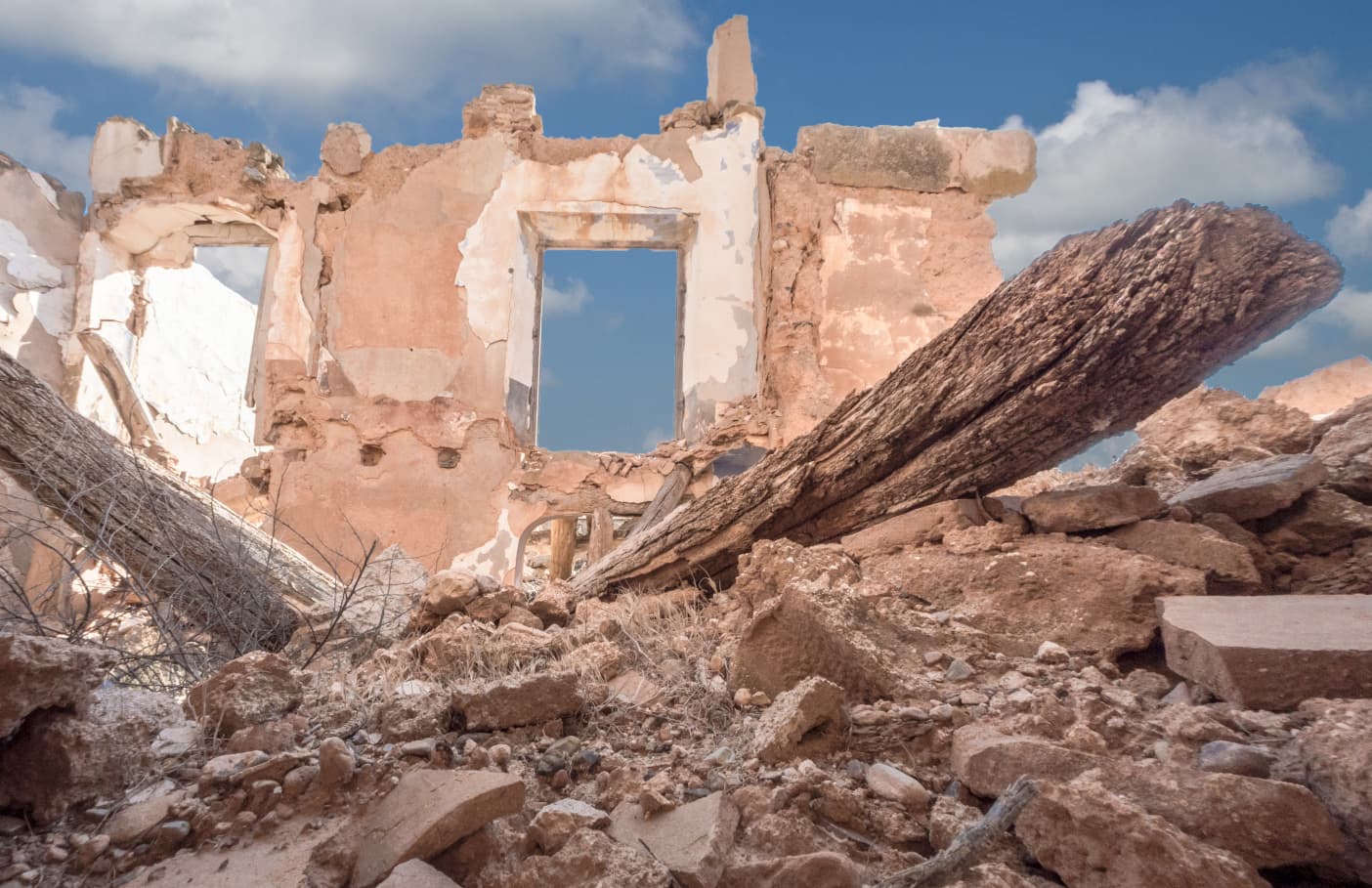
Demining as a form of humanitarian assistance
1 June 2020A legal brief on humanitarian demining as a form of humanitarian assistance under international humanitarian law.
Download PDF (opens in new window)


This Brief argues that humanitarian demining satisfies the criteria for humanitarian assistance under the Geneva Conventions of 1949 and their Additional Protocols. Accordingly, parties to the conflict that are unable to adequately provide for the civilian populations under their control have an obligation not to arbitrarily refuse offers of humanitarian demining assistance or to remove the necessary equipment, subject to rights of control and supervision. Where consent is granted, the concerned party is obliged to facilitate the implementation of humanitarian demining operations.
What is humanitarian demining?
Humanitarian demining is the physical removal or deactivation of abandoned mines, explosive remnants of war(ERW), and improvised explosive devices (IEDs) to protect civilians from their indiscriminate effect, facilitate a return to ordinary civilian life and, where applicable, ensure the delivery of humanitarian aid. Humanitarian demining differs from military demining because it: (a) aims for complete mine clearance to make an area safe for civilians; (b) does not accept deminer casualties as an operational reality and therefore must adhere to strict safety standards at all times; and (c) must have a distinctly humanitarian, non- military purpose.
Who has the primary responsibility to conduct humanitarian demining?
Under international humanitarian law (IHL), parties to the conflict have an obligation to provide civilians living on the territory under their control with supplies essential for their survival. Due to the fact that mines indiscriminately effect the civilian population and prevent the delivery of essential humanitarian supplies during armed conflict, it is submitted that the obligation to meet the essential needs of the civilian population may include an obligation to facilitate humanitarian demining. Under international human rights law (IHRL), States also have a primary obligation to ensure the essential rights of the civilian population under their effective control. Given the impact that abandoned anti-personnel mines have on the realisation of human rights, including the rights to life, health, water, adequate housing and the rights of the child, it is submitted that this obligation under IHRL may include an obligation to facilitate humanitarian demining. Where warring parties are unable to fulfil these obligations themselves, they are required to cooperate with neutral third States and impartial humanitarian organisations.
Who is entitled to offer humanitarian demining assistance?
Under IHL, impartial humanitarian organisations are entitled to offer humanitarian assistance in situations where the civilian population is inadequately supplied. Impartial humanitarian organisations are defined as entities whose mission is to prevent and alleviate suffering in armed conflict while acting effectively and are worthy of trust due to their humanitarian and impartial nature. Humanitarian assistance is defined as activities aimed at preserving life and personal security, alleviating suffering, and addressing the essential needs of victims of armed conflict that are provided in accordance with the “fundamental principles” of humanity, impartiality, neutrality, and independence. To varying degrees, the fundamental principles of humanitarian assistance have come to represent a legal threshold for defining humanitarian activities as “humanitarian assistance” under IHL. Humanity, impartiality, and neutrality as non-engagement in the hostilities are definitional prerequisites for the provision of humanitarian assistance. Neutrality as non- politicisation and independence are operational principles that are necessary to obtain access and conduct humanitarian activities in accordance with the principles of humanity and impartiality.
Can humanitarian demining be classified as humanitarian assistance under international law?
Firstly, as explained above, humanitarian demining is necessary to protect civilians from the indiscriminate effect of abandoned anti-personnel mines during armed conflict and to facilitate the delivery of life-saving humanitarian aid, such as food, shelter, and medical supplies. Thus, it falls within “humanitarian activities” essential to the survival of the civilian population under IHL.
Secondly, humanitarian demining is capable of complying with the fundamental principles of humanity, impartiality, neutrality, and independence for the following reasons:
- Humanitarian demining prioritises its services on the basis of humanitarian need. It is therefore compliant with the principle of humanity.
- Humanitarian demining can be conducted solely on the basis of need and without adverse discrimination in accordance with the principle of impartiality.
- Humanitarian demining can be conducted without providing a definite military advantage to a party to the conflict or engaging in controversies of a political, religious or ideological nature in compliance with the principle of neutrality.
- Humanitarian demining can be operationally independent from other actors so as to ensure that it is not subservient to external priorities and may deliver its services in accordance with the above principles. It is therefore capable of complying with the principle of independence.
Where humanitarian demining complies with the above principles, it should be classified as a form of humanitarian assistance under the Geneva Conventions of 1949 and their Additional Protocols.
Due to the nexus between demining activities and military objectives, humanitarian demining may pose a special risk to the principle of neutrality. The party to the conflict that is facilitating the humanitarian demining operation, for instance, may use it to further its military objectives or deprive the opposing side of a definite military advantage. To minimise such risks of providing a definite military advantage, humanitarian demining organisations should limit their activities to the removal of abandoned anti-personnel mines in civilian-populated areas away from the conduct of hostilities.
Three, mutually reinforcing, arguments are presented in support of this conclusion:
- Since the mines are “abandoned” and no longer party. serving a military purpose, their removal does not provide a “definite military advantage” to the party on whose territory the mines are removed nor it deprives such an advantage from the party who laid the mines.
- Where the presence of such mines only has an “indiscriminate effect on civilians”, their removal does not provide a military advantage. It is simply a means of complying with that State’s obligation under customary IHL to limit the indiscriminate effects of mines.
- Where abandoned mines will have an indiscriminate effect or have been laid in a deliberate attempt to target civilians, their removal is not to be considered as an engagement in hostilities. The UN Security Council has stated that action taken to prevent a violation of IHL’s core rules, such as the prohibitions on attacking on civilians or obstructing humanitarian aid, shall not be regarded as an interference in the conflict or a violation of the principle of neutrality.
Limiting humanitarian demining to the removal of abandoned mines outside the conduct of hostilities is therefore necessary to comply with the principle of neutrality.
Can humanitarian demining equipment be removed from a humanitarian convoy?
Humanitarian demining assistance is subject to the consent of the affected State under IHL, except in cases of occupation or a United Nations Security Council (UNSC) resolution that explicitly overrides the requirement of consent. States are under an obligation not to arbitrarily refuse offers of humanitarian demining assistance or remove the necessary equipment. The legal consequences of an arbitrary refusal are limited and do not permit humanitarian assistance to be delivered by force, which is why seeking consent remains crucial from a practical, operational and security perspective.
Where consent is obtained to provide humanitarian demining assistance, the concerned party is under an obligation to facilitate the mission and provide the necessary protection of the humanitarian convoy. However, the concerned party retains the right of control, which includes the right to inspect the humanitarian convoy and remove any items, such as demining equipment, that provide a definite military advantage to the belligerent party.






